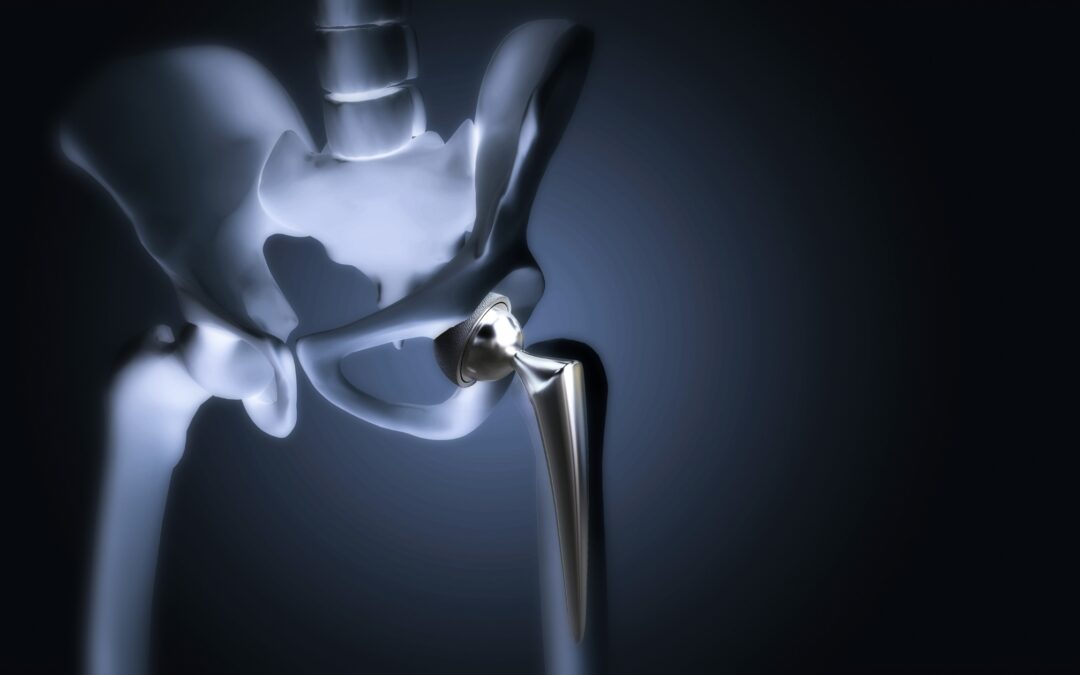Hip pain can drastically affect your mobility, independence, and quality of life. For individuals suffering from persistent hip discomfort due to arthritis, fractures, or other joint-related issues, Hip Replacement Surgery offers a promising solution to restore movement and reduce pain. At Vidyasagar Hospital, we provide state-of-the-art care and comprehensive support for patients considering this life-changing procedure.
In this blog, we’ll walk you through everything you need to know about hip replacement surgery — from understanding the basics to what to expect before, during, and after surgery.
What is Hip Replacement Surgery?
Hip Replacement Surgery, also known as total hip arthroplasty, is a surgical procedure where a damaged hip joint is replaced with an artificial implant. The hip joint is a ball-and-socket joint composed of the femoral head (ball) and the acetabulum (socket). Over time, injury or conditions such as osteoarthritis, rheumatoid arthritis, or hip fractures can wear down this joint, making daily activities painful and difficult.
During the surgery, the damaged bone and cartilage are removed and replaced with a prosthetic joint made of metal, ceramic, or hard plastic. This new joint helps restore function and reduce or eliminate pain.
Who Needs Hip Replacement Surgery?
Not everyone with hip pain needs surgery. At Vidyasagar Hospital, our experienced orthopedic team conducts a thorough evaluation to determine whether surgery is the best course of action. You may be a candidate if you experience:
- Chronic hip pain that limits daily activities like walking or bending
- Little or no relief from medications or physical therapy
- Difficulty sleeping due to hip discomfort
- Stiffness that makes leg movement challenging
- Pain even while resting
Common conditions leading to hip replacement include:
- Osteoarthritis – the most common cause
- Rheumatoid arthritis – an autoimmune disease affecting joints
- Avascular necrosis – bone death due to limited blood supply
- Hip fractures – especially in elderly patients
Types of Hip Replacement Surgeries
At Vidyasagar Hospital, we offer several types of hip replacement procedures tailored to each patient’s specific condition:
1. Total Hip Replacement
This is the most common type, where both the ball and socket are replaced with prosthetic components.
2. Partial Hip Replacement
Only the ball part of the joint is replaced. This is typically used in cases of fracture.
3. Hip Resurfacing
Involves capping the femoral head with a metal covering rather than removing it. Suitable for younger, more active patients.
4. Minimally Invasive Hip Replacement
Utilizes smaller incisions and advanced techniques to reduce recovery time and tissue damage.
Our hip replacement surgeons specialize in the latest minimally invasive and robotic-assisted procedures, ensuring precise outcomes with quicker recovery.
Preparing for Hip Replacement Surgery
Proper preparation can improve surgical outcomes. Before the surgery, you’ll undergo:
- A complete medical evaluation
- Imaging tests such as X-rays or MRIs
- Blood and urine tests
- Preoperative physical therapy (in some cases)
Your doctor will also advise on medications to avoid before surgery and may recommend lifestyle changes like quitting smoking or losing weight to reduce risks.
The Surgical Procedure
Hip replacement surgery generally takes 1 to 2 hours. It is performed under spinal or general anesthesia. Here’s a basic overview:
- The surgeon makes an incision over the hip.
- The damaged bone and cartilage are removed.
- The prosthetic components are implanted.
- The incision is closed, and recovery begins.
Modern techniques used at Vidyasagar Hospital allow for enhanced accuracy and minimal blood loss.
Recovery and Rehabilitation
Recovery after hip replacement surgery is a gradual process. Most patients can begin walking with assistance within a day or two. A structured rehabilitation program is crucial and includes:
- Physical therapy to improve strength and mobility
- Pain management using medications and other techniques
- Wound care to avoid infection
- Lifestyle guidance for home safety and return to daily activities
Complete recovery may take 6 to 12 weeks depending on age, health, and the type of surgery.
Benefits of Hip Replacement
Choosing to undergo hip replacement can be life-changing. Key benefits include:
- Significant pain relief
- Improved joint function
- Greater mobility and flexibility
- Enhanced quality of life
- Long-lasting results (implants can last 15–20 years or more)
Risks and Complications
As with any major surgery, there are potential risks. However, our expert team at Vidyasagar Hospital takes every precaution to minimize them. Possible complications include:
- Infection
- Blood clots
- Implant loosening or dislocation
- Nerve or blood vessel damage
- Difference in leg length
Prompt post-operative care and adherence to recovery protocols reduce these risks significantly.
Why Choose Vidyasagar Hospital for Hip Replacement Surgery?
- Experienced Surgeons: Our orthopedic specialists have performed hundreds of successful hip replacements.
- Advanced Technology: We use the latest techniques, including minimally invasive and computer-assisted surgeries.
- Patient-Centric Care: From consultation to recovery, we provide personalized care at every step.
- State-of-the-Art Facilities: Our modern operation theatres and rehabilitation centers are designed for comfort and safety.
- Comprehensive Support: Our team includes physiotherapists, pain specialists, and nurses to guide you through recovery.
Learn more about our services here: Vidyasagar Hospital Hip Replacement Surgery
Conclusion
Hip replacement surgery is a safe and effective treatment option for individuals suffering from chronic hip pain and joint deterioration. With advancements in surgical techniques and rehabilitation, many patients regain their independence and live pain-free lives.
If you’re considering hip replacement, trust the experts at Vidyasagar Hospital. Schedule a consultation today and take the first step toward a more active, pain-free future.




Recent Comments